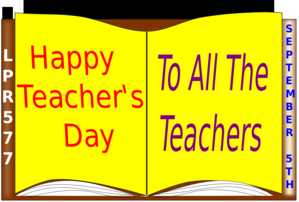Blowing the cover of whistleblowers will harm democracy
By C S Krishnamurthy, Sep 25, 2014 :
The recent suggestion of the Supreme Court asking the Centre for Public Litigation to reveal the identity of the source that provided the visitors’ diary at the residence of CBI director Ranjit Sinha dilutes the purpose of The Whistle Blowers Protection Act, 2011 enacted last year.
While anti-corruption activists campaigned long for its enactment, the government passed a resolution in 2004 under which the Central Vigilance Commission was empowered to protect the whistleblowers. As sources of information, whistleblowers often face serious consequences if their role is disclosed either through legal process or more commonly through internal investigations, which include termination or detriment in their jobs, prosecution under civil/criminal laws or even threats to their safety.
A growing number of countries have adopted whistleblower protection laws. The right to protection of sources is well recognised in international law, more specifically by the United Nations, and it is an integral part of freedom of expression. The UN Commission for Human Rights resolution in 2005 stated that it was “stressing need to ensure greater protection...for journalistic sources”. The ‘sources’ may have data valuable to the public discourse, yet each may be willing to share only in confidence to whom s/he trusts, either due to excessive caution or fear of reprisals.
Journalists have defied court orders and have been jailed, rather than compromise their ethical duty. It is nothing new that government officials attempted to get journalists reveal their sources by obtaining subpoenas and compelling testimony. While every social communicator has the right to keep his/her source confidential, the fundamental free expression philosophy is that source protection is basic condition for press freedom in democratic society, else the vital watchdog role would be neutered and the public receive less information of news value.
There is a symbiotic relationship between whistleblowers and journalists. Strong legal rights for whistleblowers enhance journalists’ ability to gather information by strengthening rights of anonymity, while sources will also be more willing to speak more publicly if they believe they are protected. Nevertheless, these legal and ethical protections are challenged in many jurisdictions by police, lawyers and judges who demand that journalists provide information to assist in investigations and proceedings.
These disclosures are often the means for news feed. The quintessential case on protection of sources is the famous US Watergate affair, where the reporters exposed the abuses of power of US President Richard Nixon and his staff which led to his resignation and imprisonment of many officials. The most significant consequence of forcing to disclose the source is the effect it will have on the ability to obtain information. The sources will not trust them, as journalists’ reputation will be changed from that of an independent gatherer of information into that of an arm of authorities-that-be. Unfairness would go unremedied and misdeeds in the corridors of power – corporate or in government divisions – would never be known.
The potential source would choose between risking exposure by giving information or avoiding risk by remaining tight-lipped, while another facet is whether the regulations on protection of sources are a right or duty for the journalists. In Sweden, for instance, the law on freedom of press, a part of the Constitution, makes it a criminal offence for the journalists to disclose a confidential source.
Battling dilemmas
The tension between protecting their sources and being able to defend their stories create basic dilemma for journalists, and they must often choose to either follow their ethical obligations or defend themselves from unjust law suits. The law that is meant to protect the whistleblowers, who reveal misdeeds, is supposed to keep truth-tellers from being punished for having spoken up. Libel and defamation laws can also be triggered to threaten to deter whistleblowers from making disclosures.
Though whistleblowers tend to be viewed by their co-workers as traitors, when however conducted in a fair manner could save their organisations from an unfortunate predicament. When you suspect that your employer is skirting safety or environmental rules, cheating on taxes, violating government contracts, committing financial fraud or breaking the law, and if the boss is a crook, speaking up is never easy.
While its time that those who harm or threaten to harm the interests of the whistleblowers faced sanctions, the media and NGOs should dish out a ‘how-to’ guide for whistleblowers to ‘blow’ right, which is vital for a country like India, given the backdrop of massive corruption, waste, fraud and abuse. In a world where corporate corruption is rampant and taxpayers are often left with enormous bills as a result, understanding and protection of ethical corporate whistle blowing should be an even more important education and policy issue. Though it is hard to manage subject matter, it gives a good sense of how invaluable whistleblowers are to the fundamental underpinnings of democracy itself.
Common man too often find his life and career turned topsy-turvy because he is honest enough to “commit the truth” after witnessing corruption in high levels. They are on last line of defence when those in power decide the rules need not apply to them. From threats to our food supply to 2G to 3G to healthcare fraud to corrupt politicians ....whistleblowers are the source of our learning. Though statistics are not available, their effort to report crimes, fraud and dangers to public health and safety have saved hundreds of lives and property.
Whistleblowers, also known as, persons of conscience, are the people who alert the public of an impending disaster, substandard healthcare, unfair elections, banks going to meltdown.... Think of a world where Enron had been prevented, where FBI stopped 9/11, where the Challenger had not blown up... Prevention saves trillions. Few whistleblowers succeed in effecting change, fewer regarded as heroes or martyrs.
(The writer is a former banker and social researcher)
(The writer is a former banker and social researcher)




